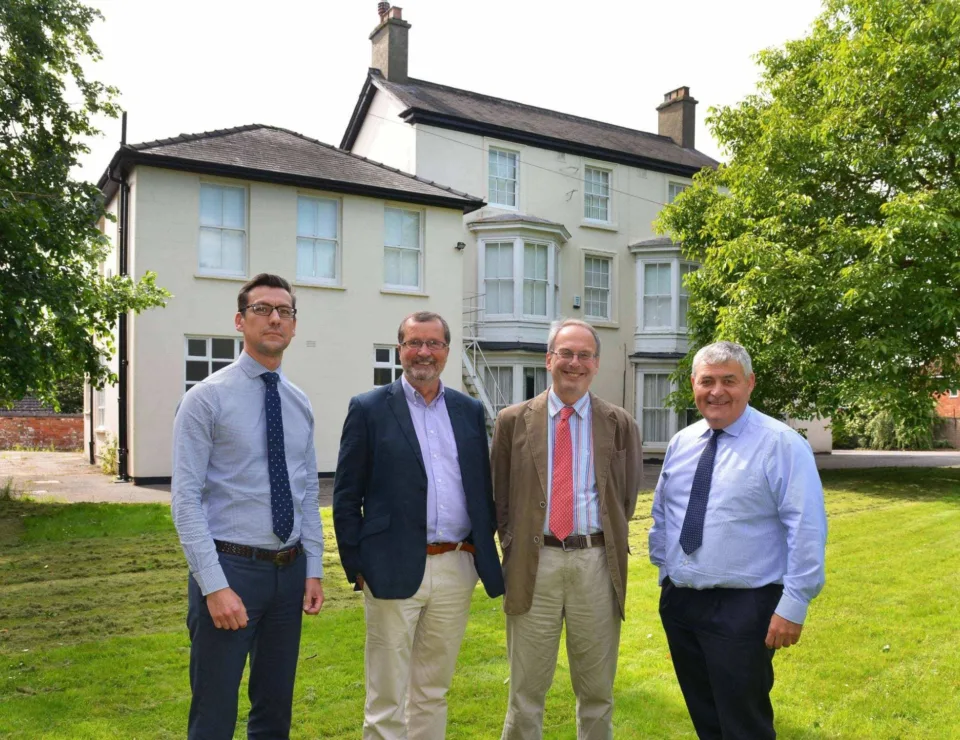Bishop Grosseteste University in Lincoln has been awarded over £2.6 million of European funding for two major projects to support entrepreneurship and innovation with businesses and social enterprises in Greater Lincolnshire.
The award, from the European Structural and Investment Funds (ESIF), is the biggest business and research investment ever secured by BGU.
It reflects the university’s strategy to increase its positive support for the development of businesses, communities and the economy of Greater Lincolnshire.
BGU has purchased St. Hugh’s on Newport, an iconic Grade II listed building, to provide a new home for the projects. The building is on the site of an Augustinian Friary and has been used as offices for many years.
The projects are:
- Lincolnshire Open Research and Innovation Centre (LORIC), which has a total value of £3.5 million (ESIF contribution £2.1 million)
- BGU Business Inspiration, which has a total value of £878k (ESIF contribution £527k).

The two projects will run until spring 2019 and spring 2020 respectively, and will provide support for over 130 small to medium-sized businesses (SMEs) and social enterprises and will create eight jobs.
Mark Bowen, Enterprise Development Manager at BGU, said: “The LORIC project will provide support to businesses, public and third-sector organisations across Greater Lincolnshire and position the university at the leading edge in the use of open data to support innovation.
“The Business Inspiration project is designed to develop entrepreneurial leadership, with a particular focus on innovative approaches to growing small and micro-businesses. It includes a £307k grant-making fund that will encourage businesses in using creative and innovative approaches. It will provide successful applicants with up to 100% funding as well as financial support to employ graduate interns and placements.
“We plan to refurbish St Hugh’s to create LORIC. The work is expected to take about 11 months to complete, but we already have a live project running in the background.
“As a result of setting-up LORIC and our associated project BGU Business Inspiration, we are intending to create eight new jobs but, by the time we have reached our target, around 40 people will be working at St Hugh’s.”

Mark added: “Once again this highlights the commitment of BGU to developing the communities that have supported us for more than 155 years.
“Thanks are due to the Greater Lincolnshire Local Enterprise Partnership, Lincolnshire County Council’s Technical Assistance team and the Business Lincolnshire Growth Hub for their unstinting support throughout the challenging application process, which took more than a year to complete.”
BGU will be making a total investment of £1.6 million with participating businesses contributing £153k.
Open Data
Open Data is increasingly in the news. The demand from businesses and organisations to be able to analyse and interpret large, complex datasets into useable information which they can easily work with is increasing.
In the future, the stars of the data scene will be people and businesses with the skills to interpret and connect different datasets in ways which will not only be easily accessible, but which will help businesses to find new opportunities and solve problems which they may not currently be aware of.
They will not only be tech and digital sector enterprises, but businesses in mainstream service, health, manufacturing, visitor economy, educational and skills sectors for example. They all have the potential to benefit from open data.
Insights could help to identify new market opportunities and develop new capabilities within a business to improve productivity, efficiency or profitability.
“At BGU, we are keen to develop the capacity of our research students and academic teams to work with organisations and to transform datasets into a language which end users can understand and use to add value in practical ways,” said Mr Bowen.
“For example, the services we are offering could be useful to help health and social care organisations to plan more effectively for the future. A business could find analysed data useful in helping them to understand changing patterns, needs and preferences within communities.”
Previous Article
Royal Visit to Mark Opening of Landmark Building at BGU
Next Article
BGU student organises activity day for young carers
Related Posts

BGU Lecturers contribute chapters to ‘The Guide to LGBTQ+ Research’

Celebrating academic writing podcast shared by BGU colleagues

Student and Lincolnshire binman self-publishes first book detailing newfound purpose despite difficult beginnings

University Professor co-authored the British Sleep Society’s case for Permanent Standard Time

Outstanding partnership work celebrated

UKNL Education Exchange 2024
